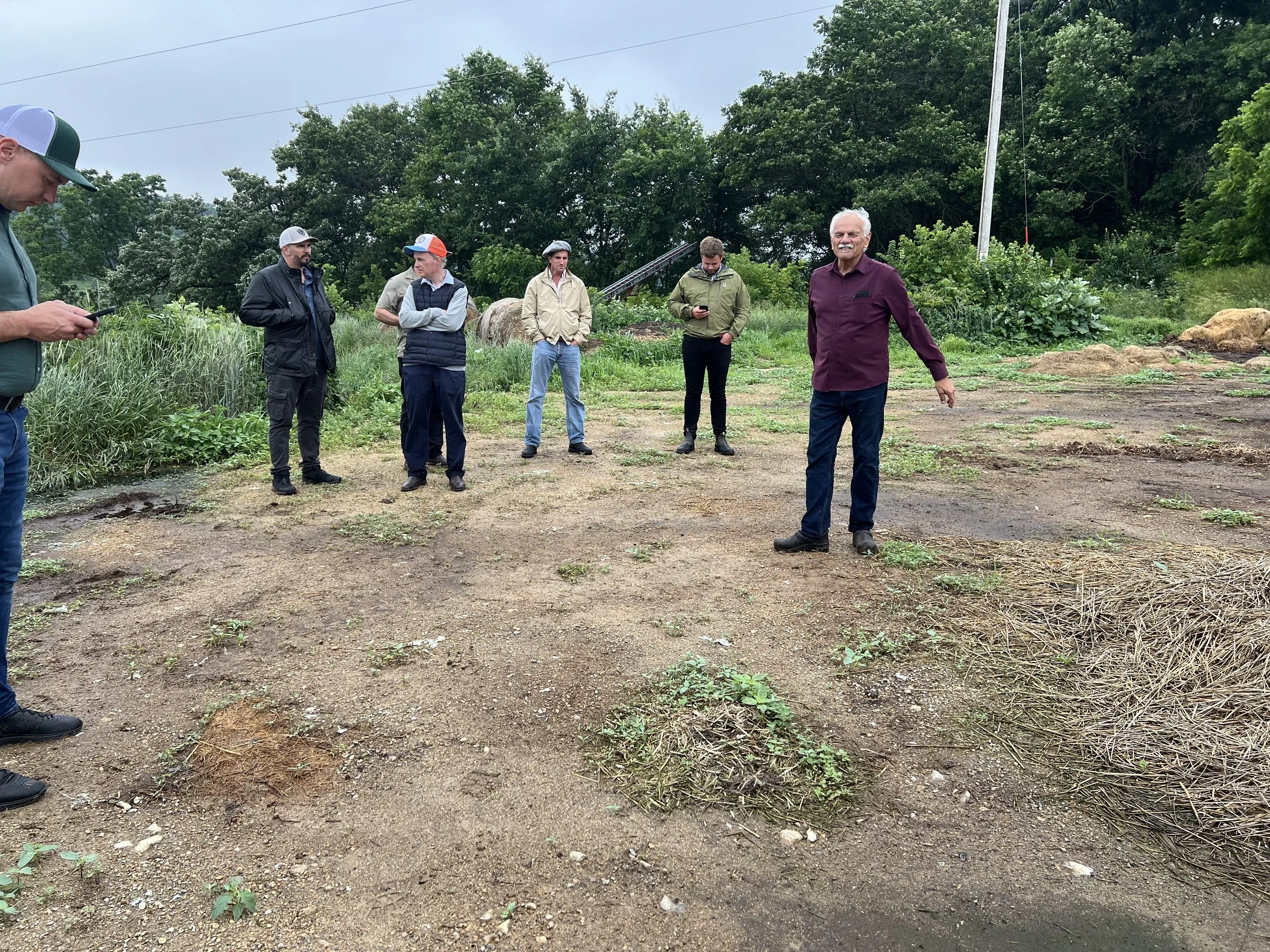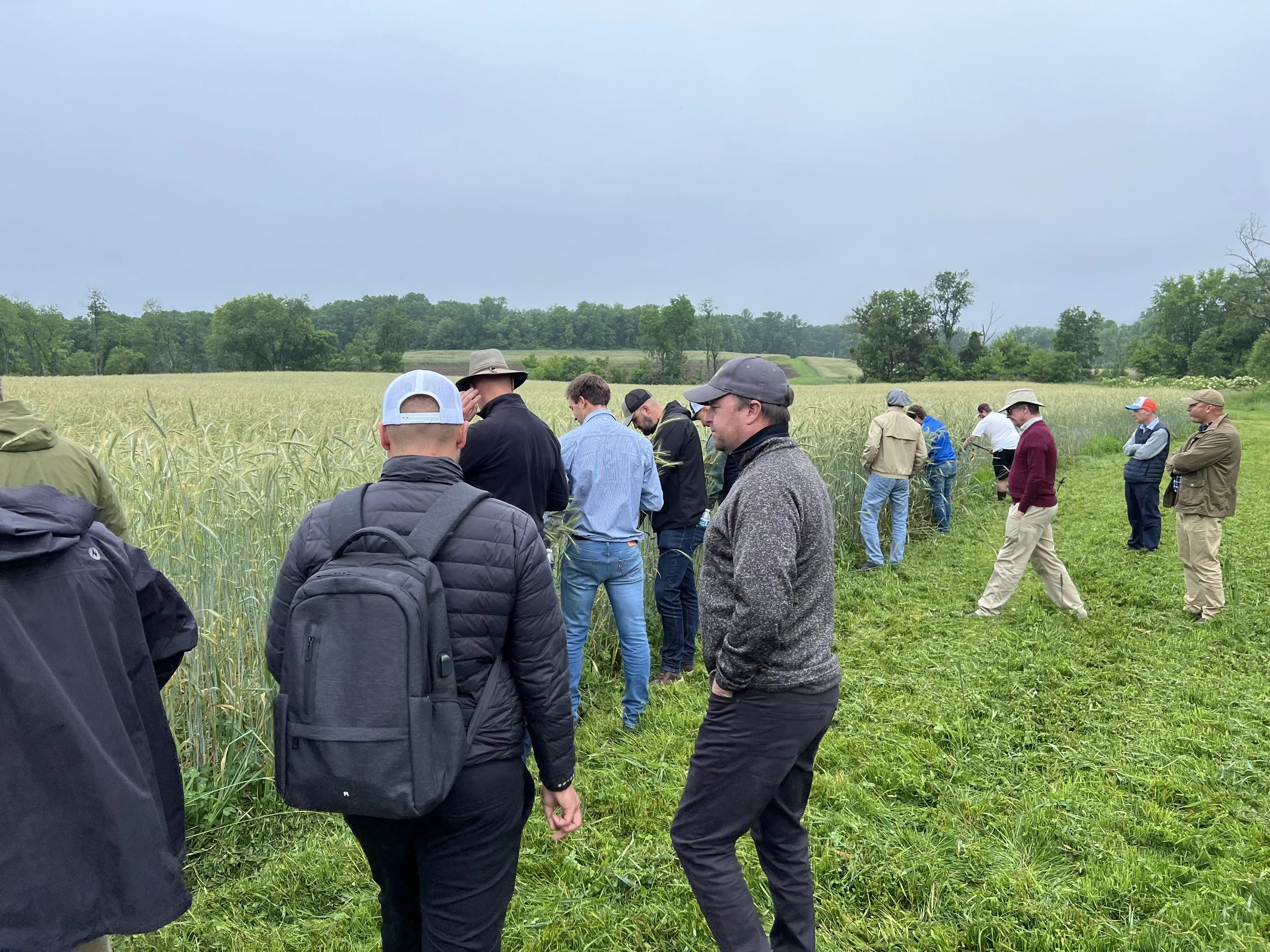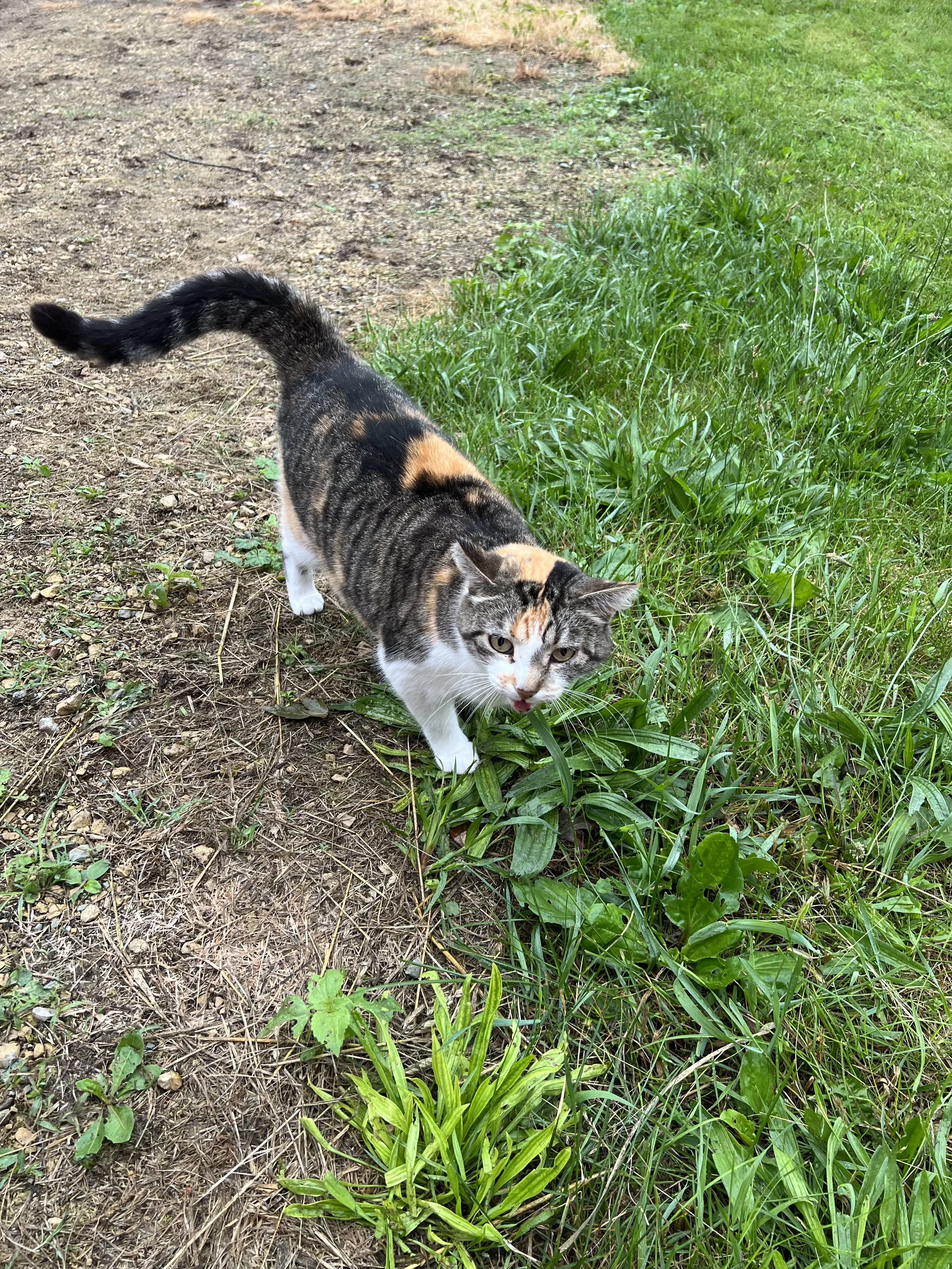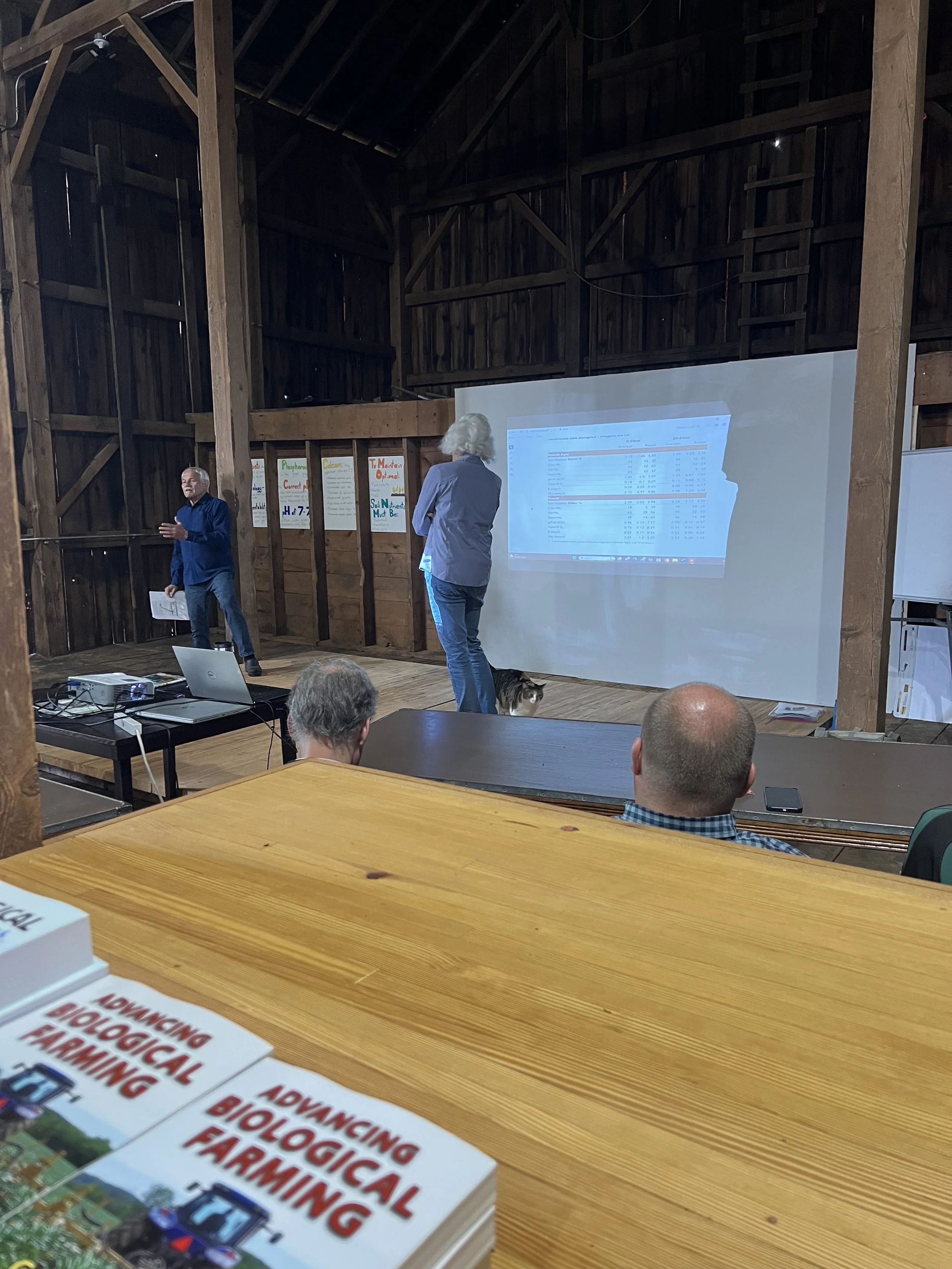Ingelby Visit Reflection
Farm Director Monroe Durand recalls his visit to Ingelby Farms.
Last week, I had the pleasure of attending a training led by my grandfather, Gary Zimmer, with global representatives of Ingleby Farms. The training gave an overview of biological farming practices, showed examples of improved soil health on local farms associated with Gary, and gave specific advice to Ingelby’s farm managers. Ingleby Farms is an agricultural corporation that owns almost 250,000 acres of farmland across four continents. Ingelby’s priorities have recently shifted to prioritize regenerative and sustainable practices over purely chasing profit.
The first day started with a series of lectures by both Gary Zimmer and Leilani Zimmer-Durand. While I was familiar with many of the ideas behind Gary’s system of Biological Farming, I learned more than I knew there was to know. Both speakers discussed the history of agriculture in the United States, the importance of soil health, and how Gary’s practices have been able to greatly restore soil health on the farms that he works with. The importance of biodiversity, crop rotations, mulching, thoughtful tillage, and proper fertilization were heavily emphasized.
After the first round of discussions, we toured several local Organic farms before returning for another round of discussions and dinner. By the end of the day, I was exhausted. During dinner, I spoke with several employees of Ingleby Farms. Some of their practices that stuck out to me were the farmers from Uruguay who graze cattle on native prairies, Australian farmers who grow a variety of crops with eight inches of annual rainfall and no irrigation, and Lithuanian farmers who became the first from Ingleby to transition to organic. Seeing farmers in charge of so much land working together to regenerate their soils and improve their practices was very inspiring.
The second day of the training was similar to the first, but with advice tailored to each farm, based on soil reports given to Gary before the training. With my limited experience, I had some trouble following the advice given, but the overall receptiveness of the farm managers to Gary’s advice was interesting to see. The most impactful of the training moment, to me, was a series of conversations between an Uruguayan farmer and Gary. The Uruguayan farmer had been very strictly no-till, after seeing the mass erosion caused by over tillage. During the first day’s lunch break, he spoke to Gary about his reluctance to resume tillage, to which Gary responded by explaining the benefits of thoughtful tillage: occasional disruption to the top layers of soil is necessary for nutrients to become plant-available. At the end of the next day, after having observed several thriving farms that utilized this method, he again spoke to Gary, this time about his intentions to begin occasional tillage on his farm. I was very surprised at how quickly his mind had changed, but was definitely glad to see the impact Gary had had on Ingleby’s farmers.
This experience was incredibly valuable. Its lessons will inform my work in the future, both at The People’s Farm and throughout my career.




